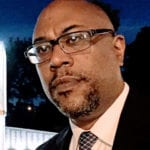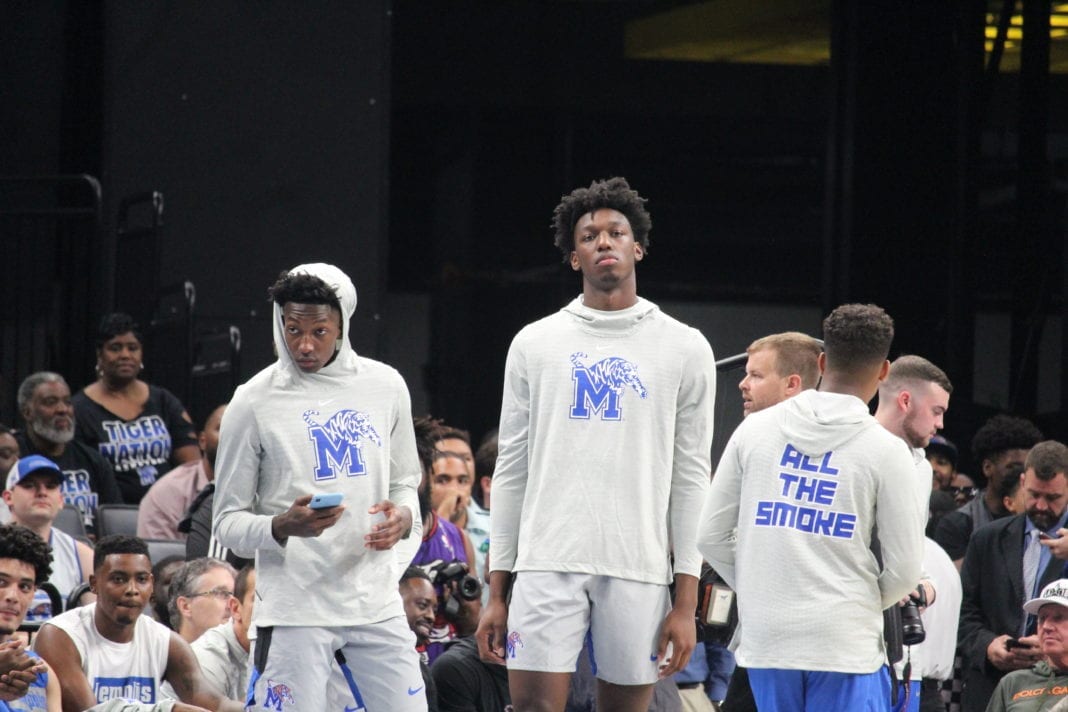There’s a scene in the 2010 Antoine Fuqua film “Brooklyn’s Finest” that comes to mind as I try to make sense of the controversy and legal drama surrounding James Wiseman and his NCAA eligibility to play for the University of Memphis Tigers.

In the opening scene of the movie, Vincent D’Onofrio, an undercover cop on a stakeout, tells his partner of a criminal caught up in a “righter or wronger” situation – where doing the right thing got the criminal in deeper legal trouble. It’s a movie about dirty cops where right and wrong isn’t so clear cut.
On Friday, Nov. 8, in response to an NCAA notice that Wiseman was “likely ineligible” to play, the university sided with Wiseman, allowing him to play in a dominant 92-46 win over UIC. Head Coach Penny Hardaway then fulfilled his pledge to play Wiseman against Oregon, which the Tigers lost, 82-74. Dogged with foul trouble, Wiseman went scoreless in the first half, but finished with 14 points and 12 rebounds.
So the UofM is basically ignoring the NCAA statement on Wiseman’s ineligibility and playing the phenom anyway. Is that “righter or wronger?”
My answer is: “Yes.”
Righter, because the NCAA had ruled on this once before, approving Wiseman’s eligibility months ago. Righter, because Wiseman shouldn’t be penalized for his family receiving a gift he knew nothing about – $11,500 that Hardaway gave to help Wiseman move to Memphis. Righter, because collegiate hoops fans – not just Tigers fans – want to see what a Memphis team led by Wiseman can do. Righter, because nobody wants the possible top pick in the 2020 NBA Draft to be sidelined.
Wronger, because the rules are the rules, and even the University of Memphis has acknowledged that a by-the-book reading of the rules should render Wiseman ineligible. Wronger, because if a judge upholds the NCAA’s position, any games Wiseman defiantly plays in will likely be forfeited even if the Tigers win on the court, thus derailing a potential dream season before it gets underway.
Wronger, because even harsher penalties for Tigers basketball would almost certainly follow – up to and including a tournament ban that could last for years. Wronger, because other talented Tigers like Boogie Ellis, Damian Baugh and Precious Achiuwa are NBA hopefuls also, and while they no doubt support their teammate, their collegiate careers hang in the balance as well.
Let’s come at it from the other side, too. Is it “righter or wronger” for the NCAA to reverse its position on Wiseman and Hardaway’s benevolence?
Righter, because, come on, this just doesn’t look right. Wiseman’s AAU coach (Hardaway) – a former NBA star, no less – takes a job as a high school coach. Before long Wiseman is moving to Memphis to play for who? Hardaway, who paid for the move. Hardaway becomes Tigers coach and within months Wiseman commits to Memphis? Is that sequence of events illegal or unethical? I guess a court will decide. But even an objective eye can say that it doesn’t look right.
Righter, because whatever precedent is set in the case will have profound effects for the rest of the NCAA. Will “boosters” be able to route star athletes to preferred programs by helping them move? How would such a dynamic play out in Division II and III schools? Or for that matter, less popular Division I programs like women’s volleyball, tennis or rifling? For the NCAA, it is about Wiseman, but it’s not just about Wiseman – it’s about every student-athlete.
Righter, because this isn’t the first time Wiseman’s eligibility has been litigated. In 2017, the TSSAA ruled that Wiseman was ineligible to play for Hardaway at East High School, but a similar injunction allowed Wiseman to complete his high school career. In both cases, the appropriateness of Wiseman and Hardaway’s relationship is the central issue.
Wronger, because the NCAA is already seen as a greedy bully by athletes and the public alike. Wronger, because even though the issue is unrelated, the legal drama comes against the backdrop of whether student-athletes should be able to profit from their celebrity. In a different landscape, Wiseman could have monetized his social media following with product placements and mentions and been able to move to Memphis without Hardaway’s help. But current NCAA rules wouldn’t have allowed that either.
Wronger, because the most promising career path for Wiseman is “professional basketball player.” And if you’re going to basically major in professional basketball, Hardaway’s program at the UofM has an elite “faculty,” uniquely positioned to prepare men for life in professional athletics. If college is supposed to prepare you for your career, the NCAA’s policies are doing just the opposite in Wiseman’s case.
What about Wiseman? Is he “righter or wronger” here? If you are an elite basketball talent, is it righter or wronger to want to be coached by a former NBA All-Star? If a former NBA All-Star takes an interest in helping your son realize his NBA dreams, would you say no? Especially if saying yes probably will forever change the financial trajectory of your family?
These are not insignificant questions. Even if Wiseman is forced to sit out this season, he is almost certain to declare for the 2020 NBA draft anyway. But if teams are unable to see him play, or another star talent has a stellar year, it could affect Wiseman’s draft stock – which in turn affects the value of his rookie contract.
This time last year, Duke’s R. J. Barrett was projected to be the top pick in the 2019 NBA Draft – that is, before his teammate Zion Williamson dazzled enough for the New Orleans Pelicans to select him at No. 1. Barrett was drafted No. 3 by the New York Knicks.
But according to HoopsHype.com, Williamson’s rookie contract ($44 million/4 years) is valued at $9 million more than Barrett’s ($35.5 million/4 years). Yes, Wiseman will be a multimillionaire by next fall regardless; but is it “righter or wronger” for Wiseman to fight for his future? That’s a pretty clear “righter.”
But for the NCAA, The University of Memphis and even Hardaway, this is all very ambiguous. The optimal thing to do – the right thing – would be for all parties to resolve the dispute quickly in a way that allows Wiseman to play. A court fight isn’t in anyone’s interest. But until it is resolved, we’re left with more “righter or wronger” questions.
During an introductory press conference in the summer, Hardaway famously said he and his team welcomed “all the smoke” that comes with the spotlight. Well Wiseman’s eligibility battle has created a firestorm.
Let’s hope the Tigers’ basketball program is still standing when the smoke clears.





